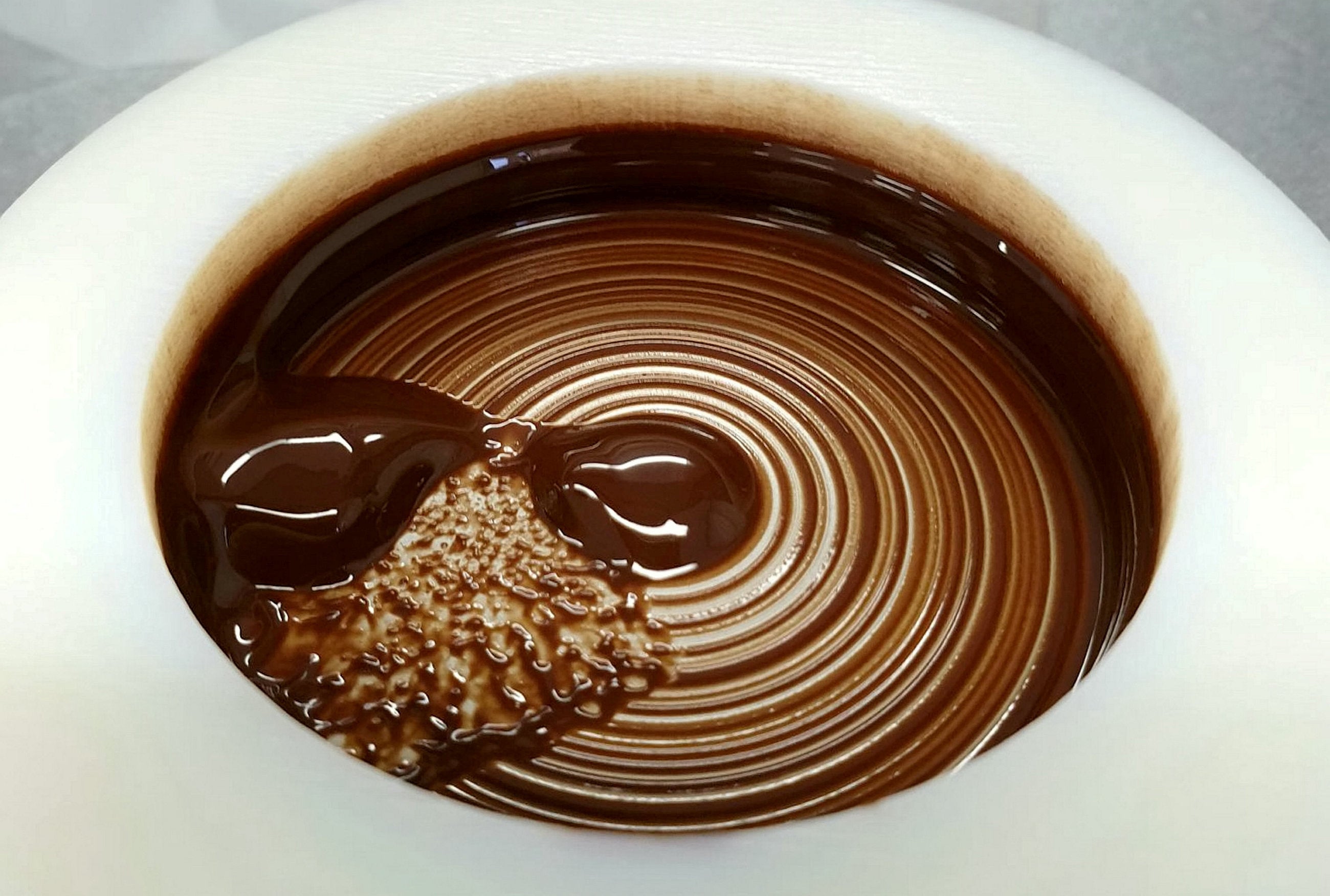Secret to why humans love chocolate finally revealed
Scientists have decoded exactly what takes place when we tuck into our favourite bars

The mouthwatering attraction of chocolate is down to how it lubricates our tongues, according to new research.
Scientists have decoded exactly what takes place during consumption, as it changes from a solid into a smooth emulsion.
Many people find the physical process irresistible - and now British experts have worked out why.
The breakthrough explains why our favourite snack bars are so alluring, and could lead to even tastier treats that don’t add inches to our waistline.
Britons are among the world’s biggest addicts, devouring an average 1.5 tonnes in their lifetime. They will tuck into more than 7,000 bars at a cost of over £12,000.
By analysing each of the steps, scientists open the door to developing luxury chocolates with the same feel and texture that will be better for you.
While chocolate is in the mouth, the pleasurable sensation arises from how it is lubricated, either from ingredients, saliva or a combination of the two.
Study co-author Professor Anwesha Sarkar, of Leeds University, said: “Lubrication science gives mechanistic insights into how food actually feels in the mouth.
“You can use that knowledge to design food with better taste, texture or health benefits.”
Fat plays a key function almost immediately when it is in contact with the tongue. After that, solid cocoa particles are released,.
They become important in terms of the tactile sensation. Fat deeper inside plays a more limited role.
It could therefore be reduced without having an impact on the feel or sensation of chocolate, said Professor Sarkar.
She explained: “If a chocolate has 5% fat or 50% fat it will still form droplets in the mouth and that gives you the chocolate sensation.
“However, it is the location of the fat in the make-up of the chocolate which matters in each stage of lubrication, and that has been rarely researched.
“We are showing the fat layer needs to be on the outer layer of the chocolate, this matters the most, followed by effective coating of the cocoa particles by fat, these help to make chocolate feel so good.”
The study, published in the journal ACS Applied Materials and Interface, focused on feel and texture by testing a luxury brand of dark chocolate on an artificial 3D tongue-like surface.
Findings were based on analytical techniques from a field of engineering called tribology, which includes in situ imaging.
Tribology is about how surfaces and fluids interact, the levels of friction between them and the role of lubrication - in this case, saliva or liquids from the chocolate.
Those mechanisms are all happening in the mouth when chocolate is eaten, said Professor Sarkar.
It releases a fatty film that coats the tongue and other surfaces - creating smoothness throughout the entire time it is in the mouth.
Lead author Dr Siavash Soltanahmadi said: “With the understanding of the physical mechanisms that happen as people eat chocolate, we believe a next generation of chocolate can be developed that offers the feel and sensation of high-fat chocolate yet is a healthier choice.
“Our research opens the possibility that manufacturers can intelligently design dark chocolate to reduce the overall fat content.
“We believe dark chocolate can be produced in a gradient-layered architecture with fat covering the surface of chocolates and particles to offer the sought after self-indulging experience without adding too much fat inside the body of the chocolate.”
Business intelligence agency MINTEL predicts revenue from chocolate sales in the UK will grow 13 percent to £6.6 billion in the next five years.
Subscribe to Independent Premium to bookmark this article
Want to bookmark your favourite articles and stories to read or reference later? Start your Independent Premium subscription today.

Join our commenting forum
Join thought-provoking conversations, follow other Independent readers and see their replies